 Turnip sculptures amaze tourists in Qingdao
Turnip sculptures amaze tourists in Qingdao Chinese ship formation conducts live fire training in West Pacific
Chinese ship formation conducts live fire training in West Pacific
 China comes in third at figure skating team event
China comes in third at figure skating team event
 China's teenager skater Yan shines at his Olympic debut
China's teenager skater Yan shines at his Olympic debut
 Taiwan-born actor stars on US TV series
Taiwan-born actor stars on US TV series
 Chinese Lunar New Year gift from abroad
Chinese Lunar New Year gift from abroad Chinese champions of Winter Olympic Games
Chinese champions of Winter Olympic Games  Zhang Yimou fined 7.48 mln for over-production
Zhang Yimou fined 7.48 mln for over-production
 Top 10 timeless female Chinese stars
Top 10 timeless female Chinese stars
KAMPALA, Feb. 9 -- The diversified Chinese culture has aroused interest in African people as China seeks to bolster its cultural bond with Africa.
Chinese television soap opera, A Beautiful Daughter-in-law, depicting young people's lives in the modern society, resonates with African audiences who come across the same problems in their families.
Another Chinese TV series, Beijing Love, aired on the Uganda Broadcasting Corporation (UBC) program, is appealing for young people.
China Radio International aired a Chinese family television series, Nana and Dudu, in local Swahili language.
Bringing these television series into the living rooms of African families is a direct and vivid display of the modern Chinese culture and the common values shared by the Chinese and African peoples.
Chinese TV channels like China Central Television (CCTV) is airing in most African countries and African media have signed agreements with Chinese media outlets.
Through these television series and Chinese media, Africans are exposed to China's rich and ethnically diverse culture.
Bringing Chinese culture into the living rooms of Ugandans will facilitate cultural exchanges and skills development, said Rose Namayanja, Uganda's minister of information and national guidance.
"One of the attributes that makes China a great nation is their hardworkingness, creativity and patriotism," she said, adding that "I trust the films will entertain and mobilize Ugandans to emulate and adopt those similar values."
In addition, several Chinese cultural groups visited Africa to showcase Chinese culture, a critical factor in boosting people-to-people relations.
"We can organize some more cultural activities because that is very important for the mutual understanding between our two peoples and the two countries," China's ambassador to Uganda Zhao Yali said.
The Confucius institutes serve as another channel for African students to get closer to the Chinese culture and learn the Chinese language.
Now more than 20 such institutes have been set up across Africa, offering various language courses and lectures, exhibitions and performances to African students.
China also welcomes African artists, academicians and young people to see by themselves China's rich cultural history.
Taga Nuwagaba, an accomplished Ugandan artist, said his visit to Nanjing, capital of China's eastern Jiangsu province, left him a lasting impression.
"When you look at Chinese art it inclines so much to realism. They do not go so much for abstract art. The Chinese artists are so good with realism," he said.
"When you are a good realist it means that you are also a good impressionist. It means that you do have the means of creating basically anything. When you see an elephant it is not only about the elephant but also the many people it represents," he added.
He said that like China, Africa must guard its history and avoid elements that can distort it.
It was surprising to know that the first man to sail around the world was a Chinese named Zheng He, who began his journey in 1405, 87 years earlier than Christopher Columbus did, he said.
"It kind of changed the way I look at our history. It kind of changed the way I read history," he said.
China has also increased its scholarships for African students to go and study in China, who later returned home with a love for Chinese culture.
Mohamed Setimba, who works for Fang Fang Hotel in the capital Kampala, studied in a university in China's city of Shanghai, where he graduated with a master's degree in international business and economics.
He speaks fondly of China's rich cultures and wishes Africans can enjoy them.
Setimba can speak fluent Mandarin and he hopes to own a trading company which would help Chinese business people open business in Africa and Africans do trade with China.
Unlike the West which tries to exert cultural dominance over Africa, China shares many common values with Africa and seeks to bolster its cultural bond with Africa on the basis of respecting Africa's diversified culture.
 Special Coverage: Sochi Winter Olympic Games
Special Coverage: Sochi Winter Olympic Games  A day of a female high-speed train chief attendant
A day of a female high-speed train chief attendant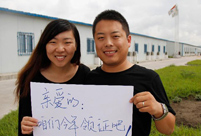 New Year greetings from Chinese nationals in Africa
New Year greetings from Chinese nationals in Africa PLA navy conducts landing drills in South China Sea
PLA navy conducts landing drills in South China Sea 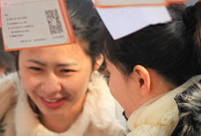 Blind date fair in Hangzhou
Blind date fair in Hangzhou 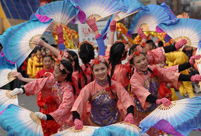 Highlights of Chinese New Year celebrations around the world
Highlights of Chinese New Year celebrations around the world 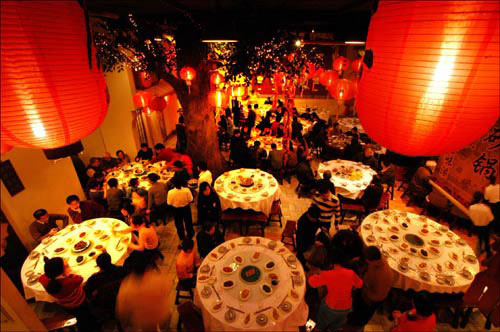 How do the Chinese spend their money during Spring Festival?
How do the Chinese spend their money during Spring Festival? 'Milk Tea' girl hosts Spring Festival gala of universities in U.S.
'Milk Tea' girl hosts Spring Festival gala of universities in U.S. 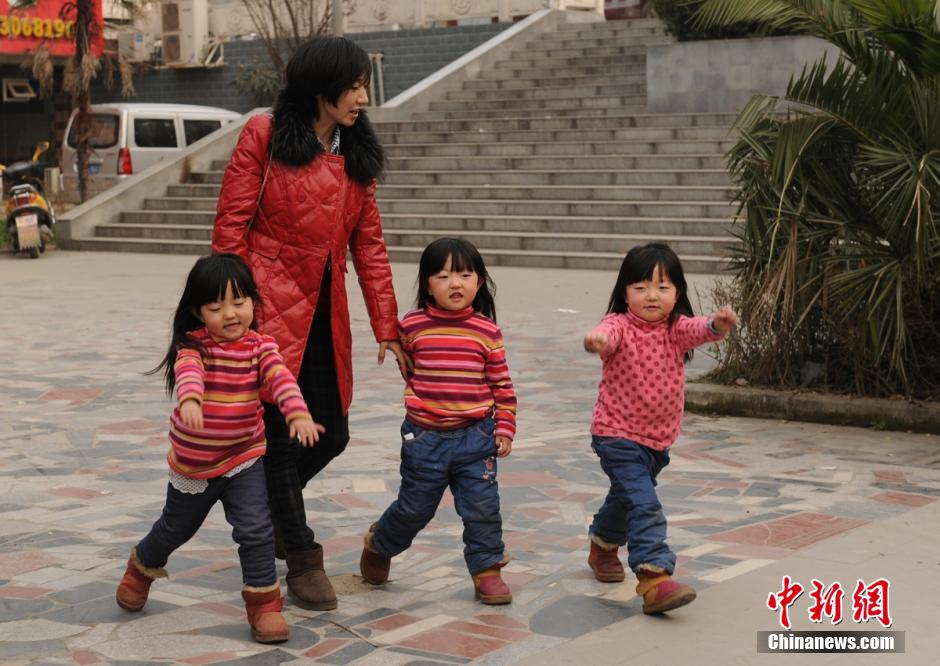 Brave mother fights cancer, enjoys Spring Festival with her triplets
Brave mother fights cancer, enjoys Spring Festival with her triplets President Xi attends opening ceremony of Sochi Winter Olympics
President Xi attends opening ceremony of Sochi Winter Olympics Highlights of opening ceremony of Sochi Winter Olympic Games
Highlights of opening ceremony of Sochi Winter Olympic Games Snowscape in Chinese New Year
Snowscape in Chinese New Year Interesting horse figures in life
Interesting horse figures in life  Top 20 most beautiful Chinese stars
Top 20 most beautiful Chinese stars  Top 10 Chinese films in 2013
Top 10 Chinese films in 2013Day|Week|Month